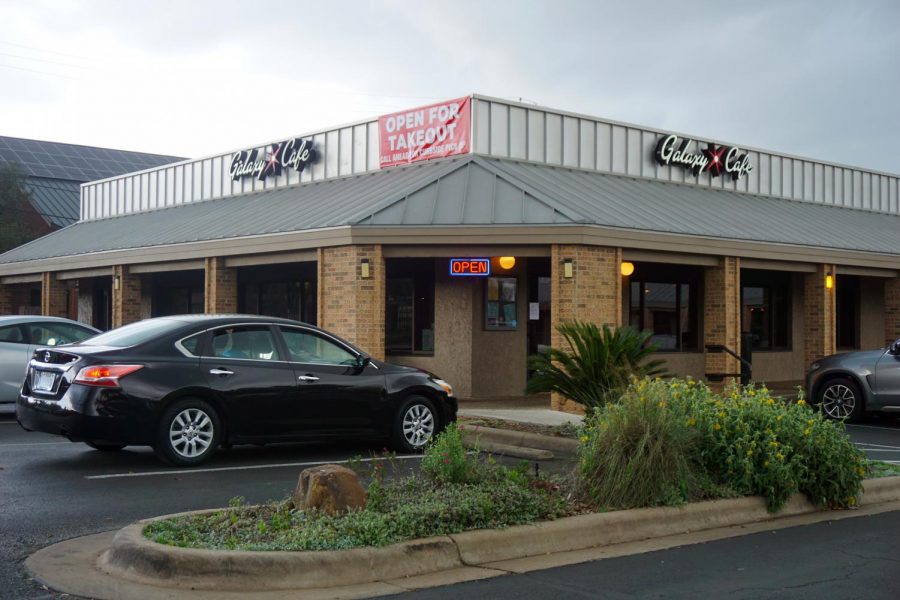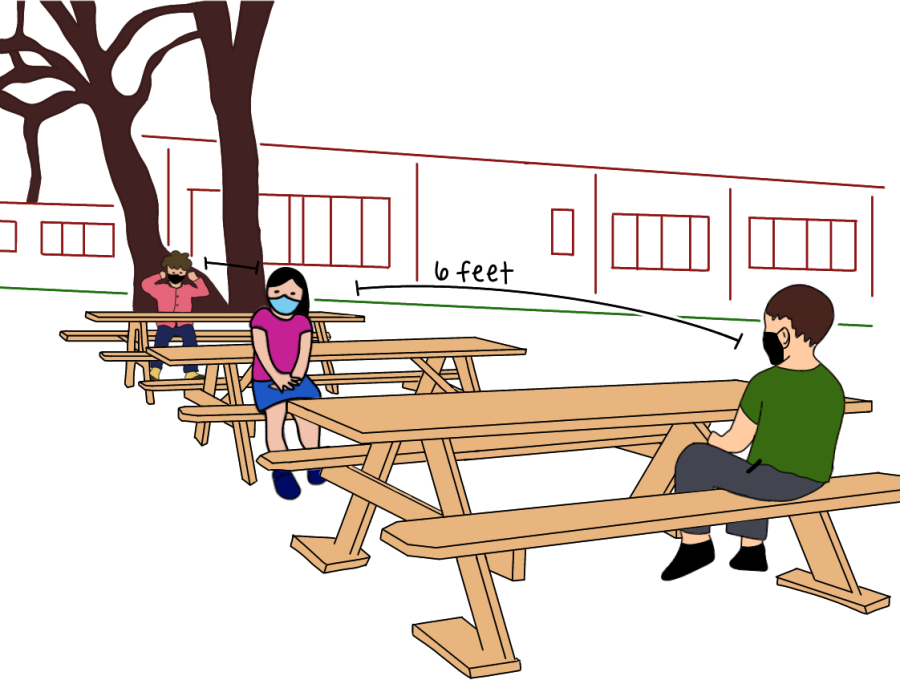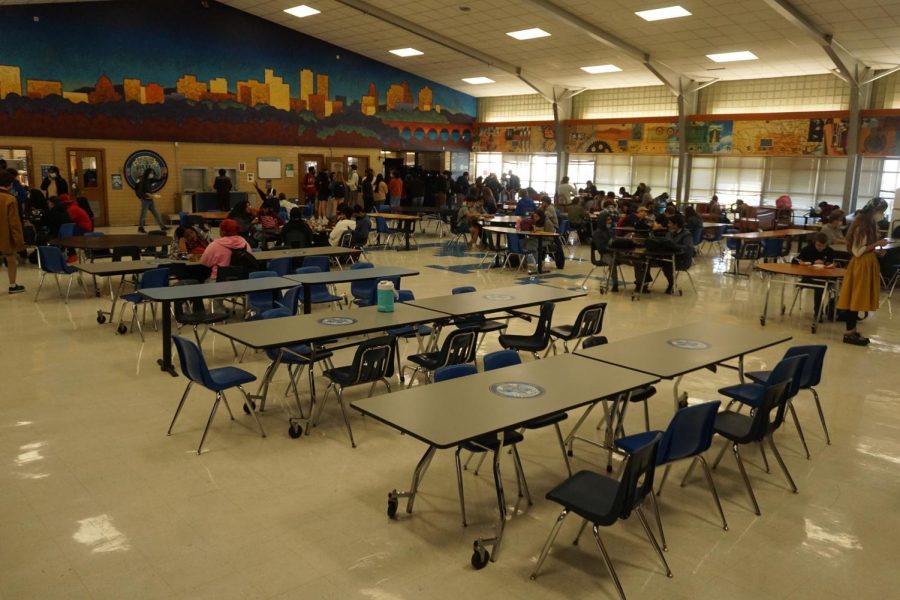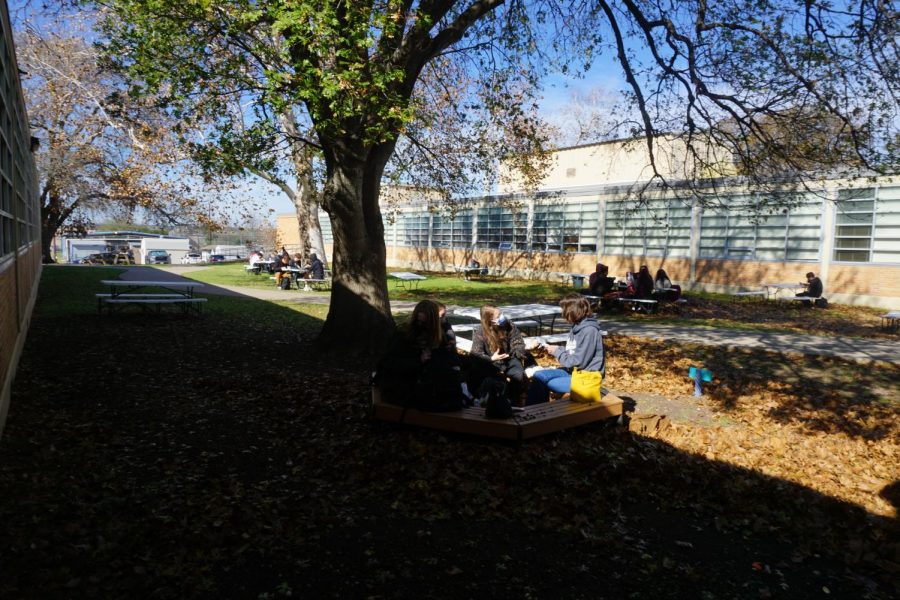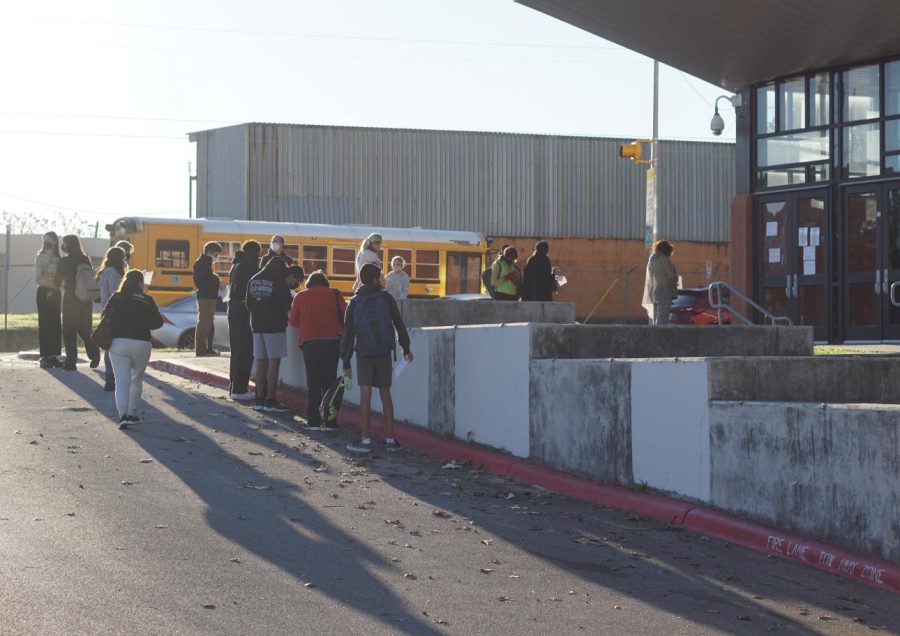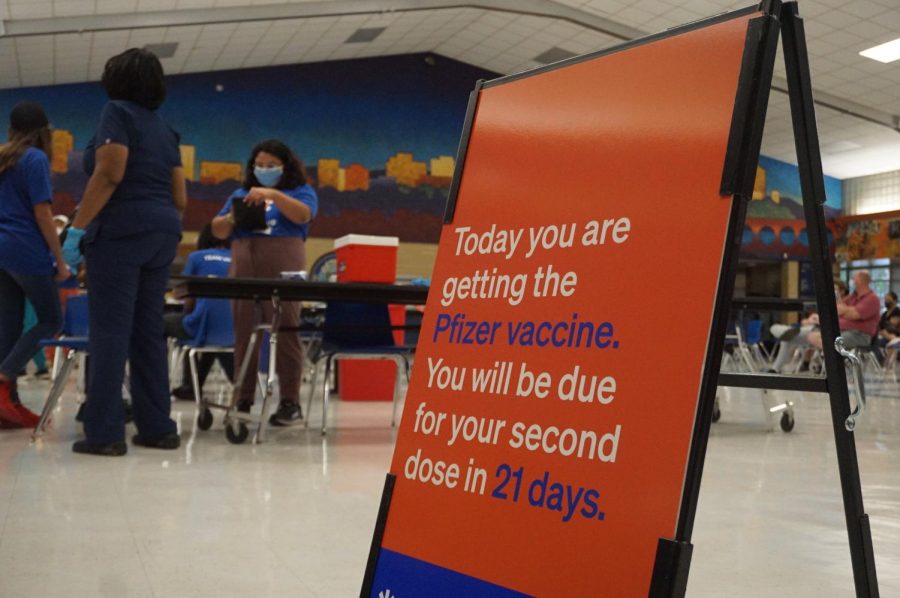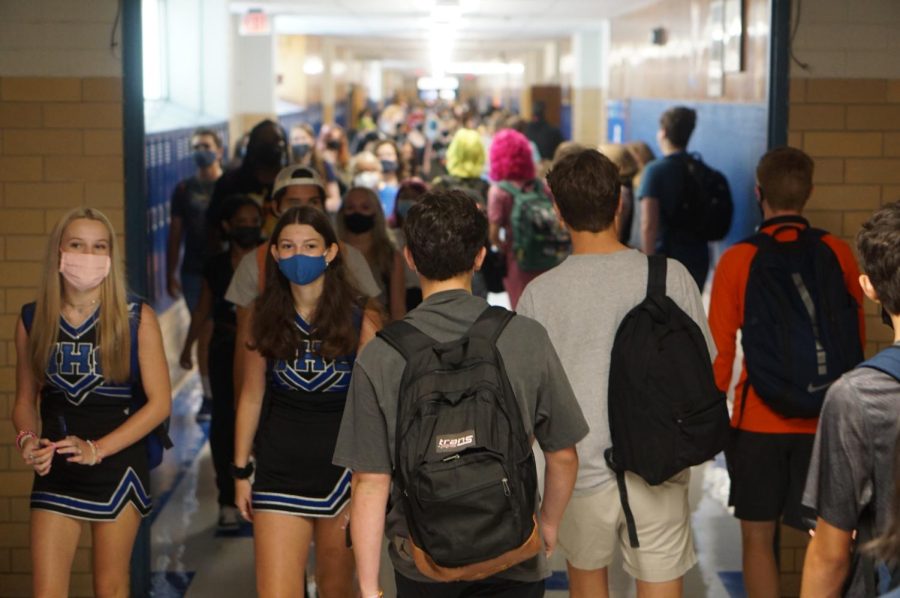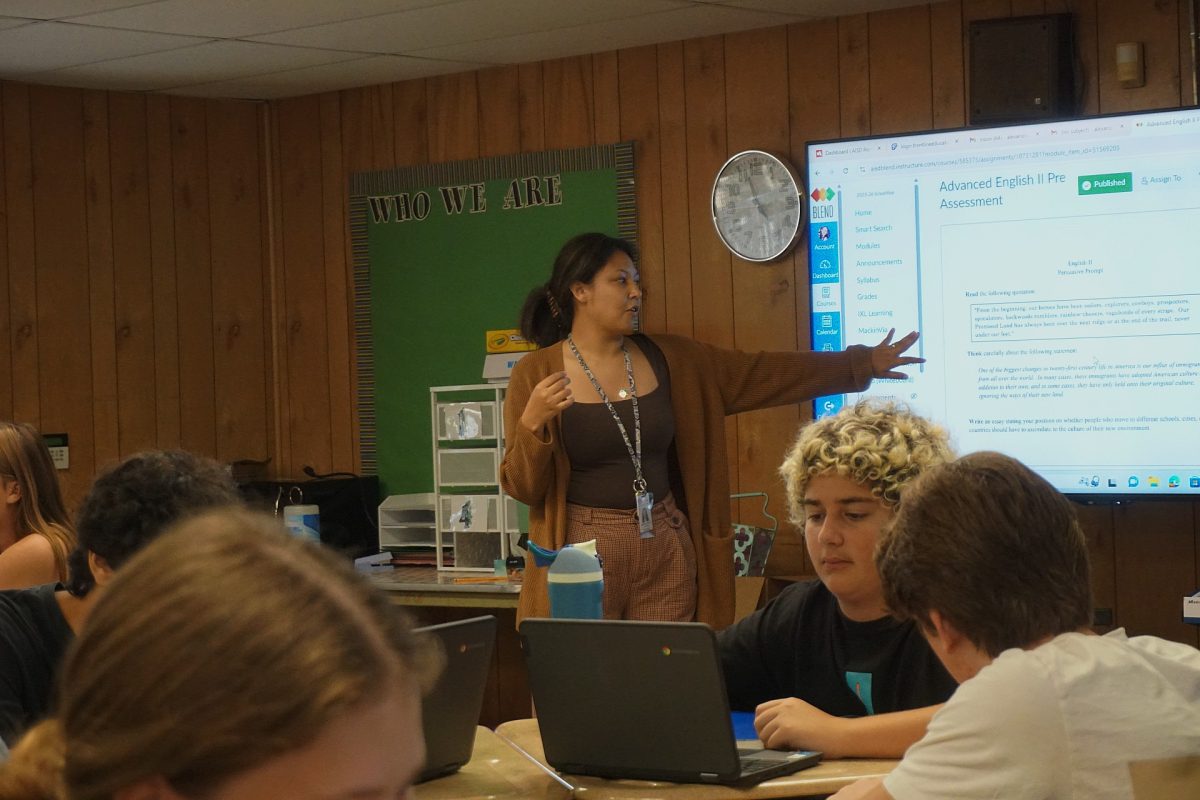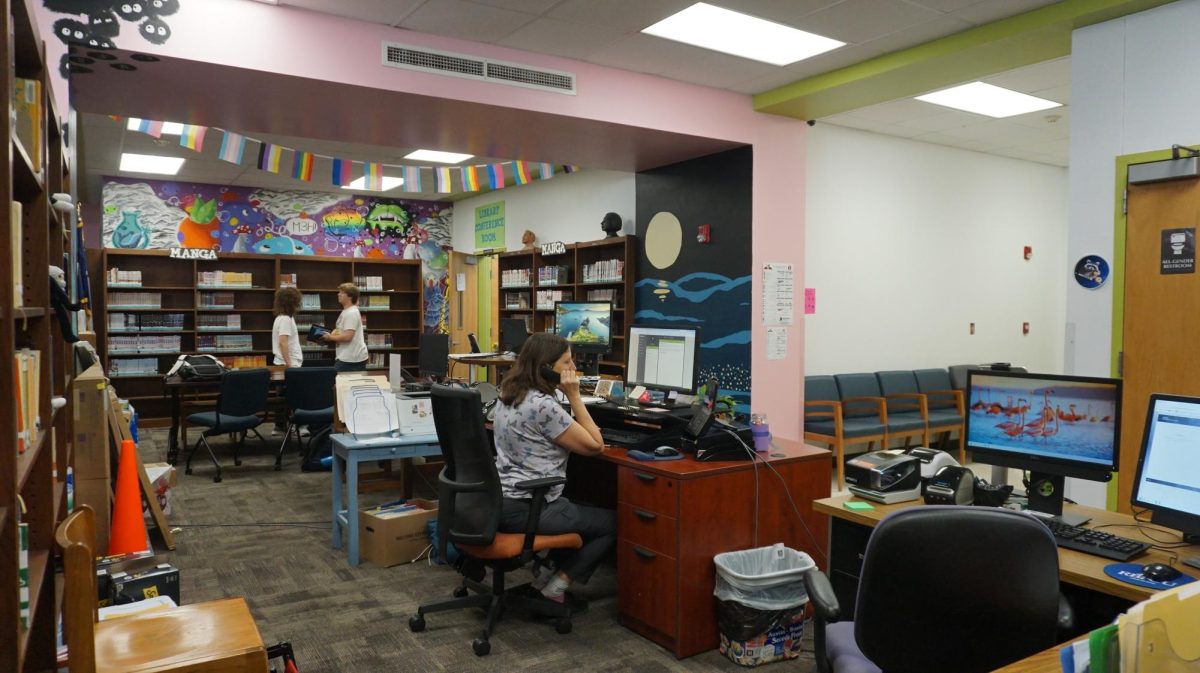We’ve all seen it: grocery store lines are getting longer as restaurants begin to look like they belong on the set of a ghost town movie.
The impact of the global coronavirus pandemic is already being experienced by the Austin restaurant scene. As major events like SXSW are being canceled and diners are being told to eat at home, local restaurants are rapidly losing customers. In addition to the loss of revenue, the lack of security, such as paid leave, is a concern for many workers in the food industry.
Our acts, individually and collectively, will determine how fast & how hard the virus hits #Austin . Today’s order will create huge hardships, & public health must remain our first priority. As we have done before, we’ll do this together and help each other. #Covid19 https://t.co/WMlu8BMpd9
— Mayor Adler (@MayorAdler) March 17, 2020
There are many precautions being put in place by local establishments to ensure health and safety. Earlier today, Austin Mayor Steve Adler and Travis County Judge Sarah Eckhardt held a joint news conference announcing that all restaurants must close their dine-in options and switch to to-go only in order to reduce risk of exposure to COVID-19.
Furthermore, in line with federal coronavirus guidelines released by the White House on Monday, the city and county are prohibiting gatherings of 10 or more people in a single room or enclosed area. Adler defended his decision to issue the order with the argument that public health comes first.
“Our acts, individually and collectively, will determine how fast and how hard the virus hits our city,” Mayor Adler said. “We know today’s order will create huge hardships for many and we resolve to do all we can to address the economic impact this virus is having. But public health must remain our first priority and the experts tell us these are steps we must take. As we have done before, we’ll do this together and help each other.”
Interim Health Authority for Travis County Mark Escott explained that it is more important now than ever to limit the spread of the virus. He used the example of other places, foreign and domestic, to demonstrate that increased caution is the best solution.
“Our City and County are at a critical point in time where we can take certain steps to prevent a community spread,” Escott said. “As we look at other cities and states that are experiencing the spread of the virus at a faster pace, it is evident that we need to increase our measures to keep our residents safe and healthy. In the medical field, we know from decades of past outbreaks that social distancing is one of the most effective ways to prevent spread is to limit exposure between people. But we are also advocating for solidarity. Over the coming weeks, our personal hygiene choices will be the main factor to keeping our community safe.”
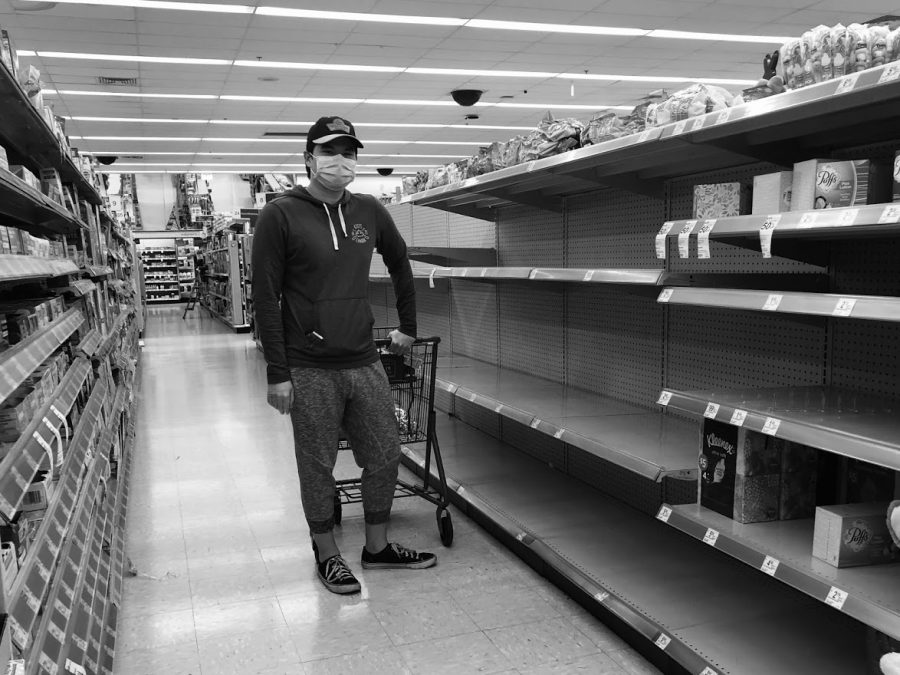
An unidentified Walgreen’s customer wears a mask for protection, but the shelves where hand cleaners and sanitizers would be has been picked clean. City officials urged Austin residents to avoid hoarding groceries and buy only what they need. Photo by Risa Darlington-Horta.
As of 7 p.m. today, there were 17 reported cases of COVID-19 in Austin according to the City of Austin website. City officials at today’s press conference urged citizens not to hoard groceries and urged businesses to rely more on drive-thru, curbside, or delivery services, to restrict the number of customers permitted in a store at one time, to minimize the number of employees working within arm’s length of one another, to provide hand sanitizers and hand-washing products and to frequently clean high-touch surfaces and ensure appropriate social distancing of any customer lines.
While stressing that public health was the No. 1 priority behind today’s announcement, City of Austin officials also pledged that in the near future they will be introducing a range of services to help people in the service industries who are likely to be affected the most by the new restrictions announced today.
Before today’s city order, many local businesses and McCallum student hot spots had already instated new sanitization rules, including Thunderbird Coffee, Kerbey Lane and Torchy’s Tacos.
Veracruz All Natural, a local taco restaurant, was one of the pioneers in increasing health and safety regulation in light of the COVID-19 outbreak. Lydie Jessin, business and human relations director for Veracruz, concedes that although new policies exist, sales continue to drop.
“We have put a lot of different rules in place to make sure our employees and customers are safe,” Jessin said. “But sales will continue to drop as we are all practicing distancing and self-quarantine.”
Jessin explains that even though the drop in revenue is disheartening, the health of the community comes first.
“We’re a small business with employees that have been with us for years and for whom we care deeply, we felt it was our responsibility to them and our customers who also have been loyal for years to put health before wealth,” Jessin said. “As new guidelines are initiated based on new studies in the next days and weeks, we’ll adjust our operations as well.”
Thunderbird Coffee also instated updated sanitization policies like switching to to-go only, and prior to that moving communal containers like cream and sugar behind the counter and increasing sterilization. The same sentiment as Veracruz about public health resonates with Thunderbird.
“The health and safety of our team and community is our utmost priority,” a story posted on Saturday on the Thunderbird Instagram account read.
Kerbey Lane, another local McCallum favorite, also chose to put the health and wellness of the community over income. In a “letter to the customers” Instagram post, CEO Mason Ayer explained the sentiment behind the new policies.
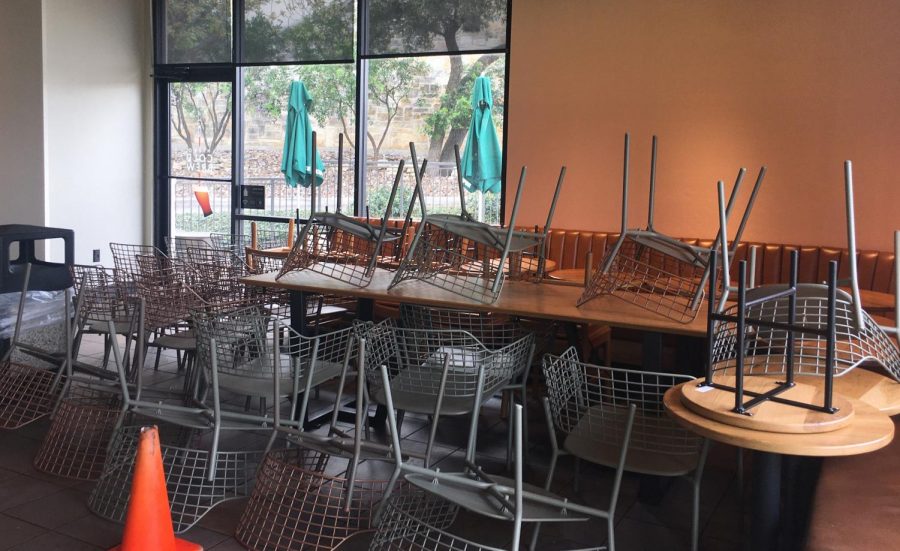
At this Starbucks in Bulverde, the chairs give a clear indication that the managers have shut down dine-in service at their restaurant. Photo by Evelyn Griffin.
“For the last 40 years, Kerbey Lane Cafe has been guided by three distinct values: care for our guests, care for our food [and] care for each other,” Ayer said. “Embedded within each of these is a deep and unwavering commitment to the health and wellness of our guests, our Team Members, and our community. We are closely monitoring the evolving public health situation and are making every effort possible to ensure the continued safety of our guests, our Team Members, and our food. This means supplementing our existing health and safety practices with additional measures to ensure increased safety.”
Senior Nathan Johnson, an employee at Torchy’s Tacos, has experienced the changes being made to local restaurants firsthand.
“We’ve had to take four hours off our business hours,” Johnson said. “We have started a strict sanitization schedule and have begun to offer curbside orders so that people don’t have to come into the building and risk unnecessary exposure.”
Senior Emma Brookshire, an employee at Fruitealicious, also feels the effects of COVID-19 on her place of work. Fruitealicious, a boba shop located in 99 Ranch market, has instated a strict new set of sanitization rules.
“All counters are kept sterilized and we no longer put the credit card chip in ourselves,” Brookshire said. “The customer places it in the chip reader. We also have removed all straws and loose menus that could be touched. We hand the straws behind the counter and we have a large menu on a scene for viewing and drink selection. We always washed our hands but now we wash our hands all the time with hot water and soap for at least 20 seconds.”
Although local restaurants are doing as much as they can to reassure their customers that the food is safe to eat, sales are still taking a huge hit. Senior Katie Nalle, an employee at Gong Cha, described the dramatic drop in revenue.
“We are getting a lot fewer customers since we are located in the Domain, and people don’t really want to be in areas that are usually crowded like that,” Nalle said. “We usually have 200-300 orders per day but this week we have only had about 100 each day.”
Senior Sam Buford, an employee at a McCallum family-owned pub called BD Riley’s, experienced a massive decline of customers at his job today.
“St. Patrick’s Day was to be the biggest day of the year since it’s a pub, but now it’s tiny,” Buford said. “Now that it’s only takeout, hardly anyone will work. … Usually, it’s incredibly busy the whole day and they have to call temporary hires, but today I wasn’t even called in since so little people came.”
Junior Victoria Juarez, an employee at Mi Madre’s Restaurant, explained that many of her co-workers rely on that job, but their livelihoods might be in danger now.
“My co-workers are more concerned because some of their income comes from working there,” Juarez said. “Since it’s gonna be dead, I think that’s why they didn’t schedule most of the staff.”
Sophomore Chris Riley, a line cook at Mother’s, shares the same concerns for his fellow employees who work full-time.
“It’s been extremely slow and there is a good chance I’m going to get laid off,” Riley said. “Most people I work with are full-time cooks and they just announced that all restaurants have to close dine-in service so most people are going to have to file for unemployment or find another job.”
Brookshire is less concerned with supporting herself and more concerned with the effects working might have on her health or her family’s health. As an employee at a grocery market, she still has to face the crowds that come in.
“Lots of people come in and out of 99 Ranch grabbing groceries and lots end up walking past us and a good amount stopping for drinks. I am concerned I could unknowingly bring [the virus] home to my younger brother, parents, and older grandparents, who are in a dangerous age group. I am scared by the idea that I have control over self-distancing and not catching the virus, but if I catch it I have no control over who I give it to.”
Although many others besides Brookshire share her fears about contracting the coronavirus, Johnson assures customers that they have nothing to worry about if they want to pay a visit to Torchy’s Tacos.
“People have nothing to fear from the food coming out of the kitchens,” Johnson said. “Especially nowadays, we are keeping an extremely sanitary workspace and making a great effort to minimize any possible opportunity that someone comes into contact with COVID-19 or any other sickness.”
Nalle suggests that customers take advantage of sweet delivery deals right now and get their food delivered, rather than picking it up.
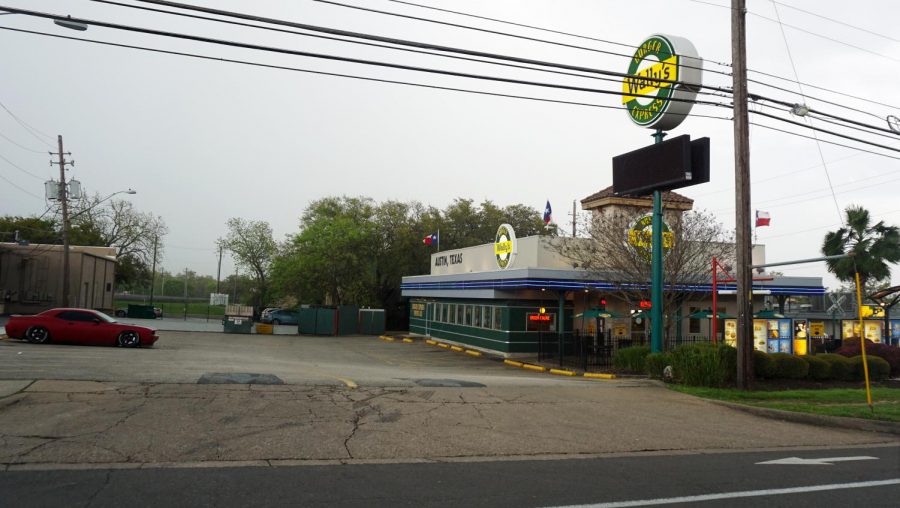
At Wally’s Burger Express on Mesa Drive, the parking lot was almost empty today. Restaurants are prohibited from proving dine-in service to customers after today’s joint order by Austin Mayor Steve Adler and Travis County Judge Sarah Eckhardt. Violators if caught could face a misdemeanor charge punishable by a fine of up to $1,000 or jail of up to 180 days. Photo by Dave Winter.
“Services like UberEats and GrubHub are offering free delivery right now which is a good option to keep up social distancing while still supporting businesses,” Nalle said.
Although he also suggests takeout as a viable option, Riley is sympathetic to the wary customer and offers an alternative to buying restaurant food: buying a gift card to use later.
“Restaurants are still able to serve to-go food, so ordering takeout or delivery and buying gift cards are good ways to support local restaurants,” Riley said.
Buford agrees with all of his fellow students, but his main message is that it’s more important than ever that Austinites remember to shop small.
“Purchasing only from local places and shops really helps,” Buford said. “Also, ordering delivery even if just eating at home still helps move money around rather than going to one large grocery store. Even just buying a gift card that you’ll use later is helpful if you really don’t have a reason to buy now.”
Buford’s parting wisdom is that in trying times like these, supporting one another will make us stronger.
“We gotta support one another,” Buford said, “And take advantage of vast amounts of technological resources to spread true information around, connect with each other, and trust in local authority to work in our best interests.”
— with reporting by Lucy Marco and Mia Terminella
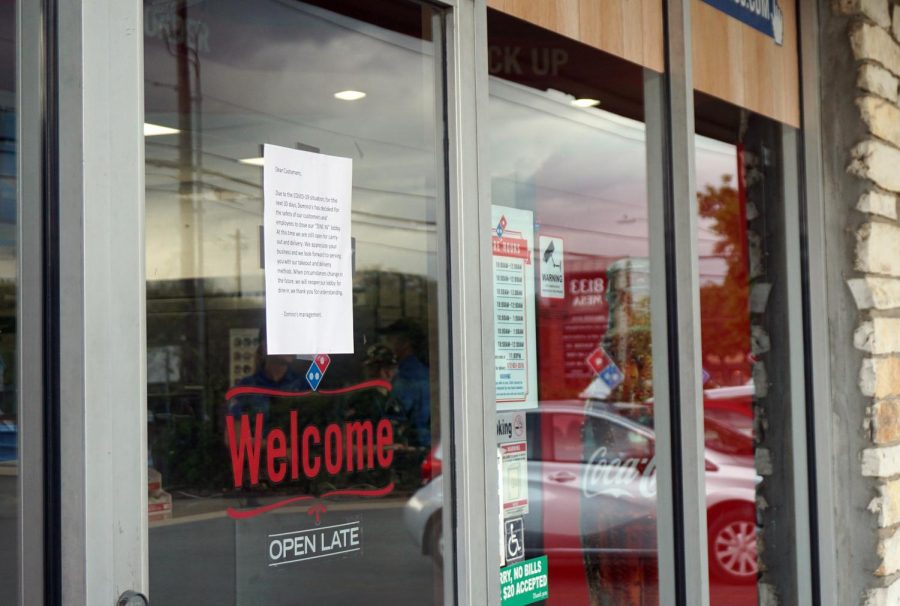
At the Domino’s Pizza across from Anderson High School, a sign on the front door reads, “Due to the COVID-19 situation, for the next 30 days, Domino’s has decided for the safety of our customers and employees to close our “DINE-IN” lobby. At this time, we are still open for carry-out and delivery. We appreciate your business and we look forward to serving you with out takeout and delivery methods. When circumstances change in the future, we will reopen our lobby for dine-in. We thank you for understanding.” The sign clearly preceded the mayor’s order that all city restaurants enact that policy. Photo by Dave Winter.



